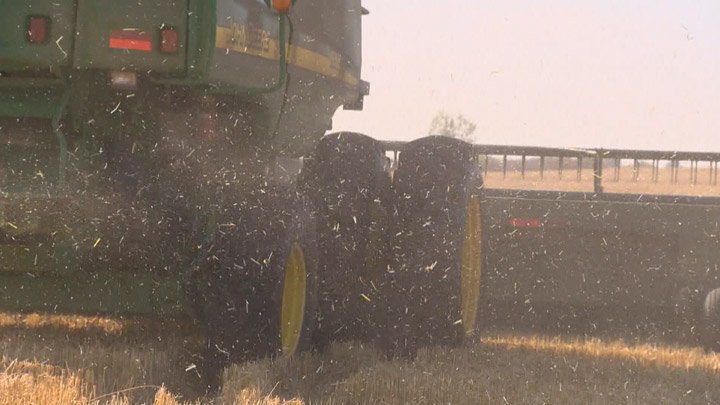Last fall, many producers in Saskatchewan were asking for dry weather as snow and rainfall prevented farmers from harvesting their crops.

Now, many farmers are asking for much need rain to fall on parched land and arid fields.
READ MORE: Cattle ranchers in southern Sask. feeling effects of record-breaking dry July
Saskatchewan Agriculture said in the latest crop report that significant rainfall is needed in most regions of the province to replenish topsoil and fill out crops.
The situation is especially dire in southern regions, where little to no moisture has fallen in several weeks.
The hot weather is also not helping the situation, which is further depleting topsoil moisture and damaging crops in many central and southern regions.
Cropland topsoil moisture is rated 38 per cent short and 22 per cent very short across the province.
The dry, hot weather is also affecting the hay crop.
Hay is expected to be in short supply this year in some areas as yields have been significantly less than normal for many producers, with many saying there will not be a second cut this year.
Hay land and pasture topsoil moisture is rated 34 per cent short and 33 per cent very short.
READ MORE: Province opens up land to farmers facing feed shortages
Harvest has already started in parts of southwestern Saskatchewan due to the extremely dry conditions.
Yields are not expected to be good, with pulses being desiccated and quality ranging from poor to good.
The government also announced that applications to Saskatchewan’s Farm and Ranch Water Infrastructure Program will now be considered past the deadline date of Aug. 1 due to the dry weather.
Applications to the program, which assists farmers and ranchers in developing sustainable water supplies for agricultural use, will now be considered until Sept. 30.


Comments